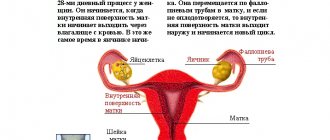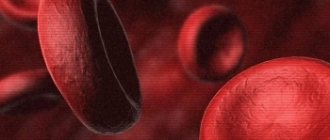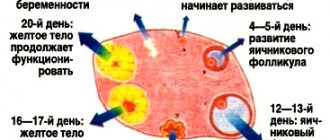For problems with conception, doctors often recommend an hCG injection as one of the most effective methods. For those women who have problems conceiving, it is very useful to know what hCG injections are, when it is advisable to use them, and when they are contraindicated, and how effective they are.
HCG entering a woman’s body through an injection increases the likelihood of pregnancy.
In what cases should hCG injections be given?
If the mother’s body works without failures, human chorionic gonadotropin begins to be synthesized in the female body only after pregnancy. Very often, hCG injections are prescribed to activate ovulation in order to create favorable conditions for conception. After all, fertilization is possible only after the egg is released from the follicle that burst during ovulation.
Some women experience disruption of this process. Eggs are either not produced at all or simply do not come out. Doctors call this menstrual cycle anovulatory.
Before prescribing the hCG hormone in injections, it is mandatory to find out and eliminate the reasons that caused the disruption of the monthly cycle. Injection of human chorionic gonadotropin leads to maturation and timely rupture of the follicle. HCG injections are highly likely to help you get pregnant if you have menstrual irregularities.
Prescribing hCG injections is advisable in the following cases:
- the need to activate the release of the egg from the follicle;
- as part of an in vitro fertilization program;
- prevention of the formation of a cyst on the follicle, which has retained its integrity and began to decrease in size;
- threat of miscarriage or premature birth;
- Corpus luteum deficiency.
HCG bottles and ampoules of 500 units.
General concepts
A generally accepted method of treating ovulation disorders is ovarian stimulation in women. Clinical studies show that pregnancy after ovarian stimulation is 93% more likely. Such measures are carried out only on the condition that the man does not have any problems with childbearing. The method of stimulating ovulation is offered to newlyweds if infertility is unexplained and there are no apparent reasons for it. The technique of ovarian stimulation, reviews of which from patients help hundreds of women decide on the procedure, is considered one of the most effective procedures to combat infertility.
GET A DOCTOR'S CONSULTATION By clicking on the button, you consent to the processing of your personal data
We guarantee the confidentiality of your data
Causes of anovulation
Several factors lead to disruption of the natural ovulation process:
- Frequent stress.
- Anorexia.
- Inflammation of the organs of the reproductive system.
- Hypothalamic dysfunction.
- Uncontrolled use of oral contraceptives.
- Obesity.
- Poor blood circulation in the brain.
- Early menopause.
- Pathologies of the thyroid gland.
- Liver diseases.
Before stimulation, a thorough examination of the patient is carried out, laboratory tests, ultrasound are prescribed, basal temperature is measured, etc. In accordance with the diagnostic results, a decision is made on the need to use hCG drugs to increase the chances of conception.
Normalizing the volume of testosterone and prolactin produced during treatment helps restore ovulatory function naturally.
Main problems with the follicle
The reason for the lack of ovulation is often not only the fact that the follicle does not open, but also the fact that it does not reach the required size (does not ripen). In such cases, special drugs are first used that stimulate the growth and maturation of follicles, and only then hCG is introduced.
Before a doctor prescribes hCG to overcome infertility, a married couple must undergo examination and, possibly, additional treatment. Perhaps it won’t even come to the point of prescribing hCG injections and another treatment will be prescribed.
In most cases, patients are prescribed Clostilbegit tablets for stimulation. They can be used no more than six times in a lifetime, otherwise there is a risk of ovarian wasting syndrome. If this drug is not suitable, then choose another one. You need to take medications from days 5 to 9 of your cycle. After completion of therapy, an injection of human chorionic gonadotropin is given.
Main purposes of drug administration
A timely injection of the drug provides the following important effects:
- maturation of the dominant follicle;
- precise programming of the moment of ovulation;
- release of an egg ready for fertilization;
- maintaining the hormonal function of the luteal body.
Essentially, the hCG injection is a trigger factor or trigger for ovulation. Therefore, injections of this drug are used for any infertility treatment options when it is necessary to ensure the ovulatory release of an egg.
Drugs used
There are several options for hCG drugs, the name of which does not change the dose and essence of the drug. Your doctor may prescribe an injection of one of the following medications:
- Decayed;
- Ovitrel;
- Profasi;
- Horagon.
The dose of the medicine is always selected individually. You cannot decide on your own how much of the drug is needed and when to give the injection.
Before injecting the drug
Important conditions for a timely hCG injection include the following factors:
- daily ultrasound monitoring to monitor the appearance and growth of follicles during the administration of FSH drugs;
- determining the presence of a dominant follicle;
- measuring endometrial thickness.
Only when the leading follicle has completely formed, reaching a size of 18 mm, and the endometrial thickness has been ensured at least 8 mm, can an hCG injection be given.
How does HCG injection work?
The hCG solution is administered if a follicle measuring at least two centimeters is visible on ultrasound. This substance acts on the ovulation process in a similar way to luteinizing hormone. After all, it is he who is responsible for the successful release of the egg from the ovary. Medicines based on human chorionic gonadotropin also prevent cyst formation, and during pregnancy are responsible for the development of the placenta.
When will ovulation begin after the injection?
After the injection, ovulation usually occurs within one or two days.
But this process is often delayed and takes more time. Much depends on the individual characteristics of the body, the balance of the hormonal system, the dose of the drug, etc.
In this case, ovulation began to clearly show on the test from the 3rd day after taking hCG.
What is a hormone
Human chorionic gonadotropin is a characteristic hormone with unique functions. The synthesis of this substance is carried out by the chorion (the outer shell of the embryo) during gestation. HCG promotes the development of the placenta and the growth of the child, having a positive effect on the course of the process. It is on the basis of this hormone that test strips are created, thanks to which a woman learns about fertilization and conception. Thus, the detection of human chorionic gonadotropin in a male or non-pregnant woman indicates the development of neoplasms and cancer.
The substance includes two components: alpha and beta. The second is produced at the initial stage of conception, accumulating in the body in high concentrations. At the end of the third month, the amount of gonadotropin decreases and remains unchanged until childbirth. The active synthesis of progesterone and estrogen, on which the formation of a temporary structure with yellow pigment in the ovary and the preservation of the embryo in the uterus until the appearance of the placenta depends, also occurs due to gonadotropin.
How to inject hCG
HCG injections, used to activate ovulation, are available in the form of special solutions. The instructions indicate that the medicine must be administered using an insulin needle. Injections should be given in the abdominal area. Maximum effectiveness and safety of the procedure is guaranteed by the correctly selected dosage and optimal time for its implementation. This is only possible if you contact a competent specialist.
The most commonly used drugs with hCG are from the following list:
- Humagon.
- Choriogonin.
- Menogon.
- Profasi.
- Rotten.
- Ovidrel, etc.
The active substances of these medications increase the level of human chorionic gonadotropin in the body, thus improving ovarian function. Medicines are prescribed by an experienced gynecologist after a complete comprehensive examination of the patient. In this case, all individual characteristics, hormonal levels and general health are taken into account.
Remember, self-medication is unacceptable ! Visit your doctor for instructions and a prescription.
The hCG-based drug is usually administered once. As part of the in vitro fertilization program, after activation of follicle growth, a woman is given an injection of hCG 5000 (if one follicle is mature) and 10,000 units (if there are 2 follicles). For problems with ovulation, the dosage ranges from 5,000 to 10,000 units. The safest injection is considered to be 5000 units.
The injections are given independently at home.
Indications
In the natural cycle, the hormone known as hCG begins to be produced in the body only after conception.
But for an egg to be fertilized, the mature follicle must burst. For some women, this process is disrupted. As a result, pregnancy does not occur due to the fact that the egg cannot be released from the ovary. An HCG injection is usually prescribed to stimulate the onset of ovulation. This can be done after the doctor sees the dominant follicle on an ultrasound. It should be about 20 mm. In this case, after the injection, it will be able to grow a little more and burst.
But you should know that you cannot prescribe such treatment for yourself. Everything should be done under the supervision of a doctor. The specialist should also choose the most suitable dosage for you.
Who should not take hCG?
HCG injections have many contraindications, among which are the following:
- Obstruction of the fallopian tubes.
- Premature menopause.
- Hyperthyroidism.
- Breast-feeding.
- Malignant ovarian tumors.
- Problems with blood clotting, risk of blood clots.
- Congenital or postoperative absence of the gonads.
- Individual intolerance to a drug, allergy.
- Chronic inflammatory processes of the adrenal glands.
HCG-based drugs should be used with caution in severe renal pathologies, unstable blood pressure, bronchial asthma, and coronary artery disease.
Side effects of the drug
Like any medicine, hCG injections have their drawbacks, which often manifest themselves in the form of complications. If used incorrectly or due to individual intolerance to the drug, the following side effects are sometimes observed:
- ascites;
- acne;
- allergic reactions;
- thromboembolism;
- polycystic disease;
- deterioration of health;
- weakness;
- digestive disorders;
- pain in the lower abdomen;
- fainting.
Possible complications and adverse reactions
The alleged complications are explained by the effect of the drug on the body of a particular person. Allergic reactions in the form of a rash at the injection sites are possible.
Adverse reactions occur, which are described in the annotation for the drug used:
- nausea and vomiting;
- diarrhea;
- soreness of the mammary glands;
- pain in the ovarian area;
- thromboembolism;
- hydrothorax;
- temperature increase;
- gynecomastia.
Taking into account all possible complications, gynecologists decide whether to use the hormone to achieve a long-awaited pregnancy, or refuse it.
When can I do an ovulation test?
After the injection, ovulation usually occurs one or two days later. But sometimes the egg is released a little later. For this reason, this process is carefully controlled using an ultrasound machine. When the egg is released, the patient is prescribed drugs such as Duphaston or Utrozhestan. They are necessary for the normal functioning of the ovaries.
The onset of ovulation can be tracked by ultrasound.
The fact of the release of an egg from a follicle can be determined not only by ultrasound, but also by using an ovulation test. Doctors recommend doing such tests three days after the administration of human chorionic gonadotropin. It is at this time that the concentration of hormones in the body increases, promoting successful conception.
The period for removing the drug from the body is at least 30 hours. By taking an ovulation test before the third day, you can “catch the tail of hCG.”
Stages of ovulation stimulation
Stimulation using clostilbelite begins on the fifth day of the menstrual cycle, with gonadotropins - on the second. The timing of the start and duration of taking the drugs is determined by the attending physician in accordance with the condition of the woman’s uterus and ovaries.
The first ultrasound examination is carried out a few days after the start of the ovulation stimulation procedure. Then ultrasound is repeated every 2-3 days until the follicles reach a size of at least 20 mm. After this, the woman is given an injection of hCG (in a dosage of 5,000 to 10,000 units), which starts the ovulation process and prevents regression of the follicles and the risk of follicular cyst formation.
An hCG injection is an injection of a hormonal drug with the main active substance - human chorionic gonadotropin: pregnyl, prophasia, choragon, humegon, menogon, choriogonin, etc. With the help of these drugs, the ovulation process is restored, as well as an increase in the level of hCG in the blood, due to which yellow body and its activity increases.
The doctor selects the dosage of the hCG drug in each individual case in accordance with hormone levels, the size of the follicles and a number of other equally important factors. Excessive amounts of human chorionic gonadotropin can trigger the development of ovarian hyperstimulation syndrome.
An injection of hCG (human chorionic gonadotropin) triggers the onset of ovulation, which usually begins 24-36 hours after the injection. The release of the egg is recorded using ultrasound, after which the woman is prescribed additional support for the ovaries (corpus luteum) in the form of injections of utrogestan or progesterone.
The timing and frequency of sexual intercourse or artificial insemination when stimulating ovulation is prescribed by the doctor individually, depending on the results of the man’s spermogram. If the quality and quantity of sperm are good, it is recommended to have sexual intercourse every day or every other day, starting from the moment the woman received the hCG injection until the corpus luteum is formed.
When to take a pregnancy test?
Pregnancy is something that absolutely all patients who seek help from a specialist dream about. Naturally, they are all wondering when it will be possible to take a pregnancy test after hCG injections. Basically, you can hear the answer that if fertilization has occurred, then the test will confirm this from the first day of missed menstruation. But doctors ask you to pay attention to the fact that they do not consider this method reliable.
It is important for a woman to understand that human chorionic gonadotropin has already been introduced into the body artificially, and this hormone is present in the urine for two weeks after the procedure. A pregnancy test shows two lines if the reagent reacts with the hCG hormone. And if this hormone was introduced into the body through injections, then the reliability of such a test will be extremely low.
To confirm pregnancy, it is recommended to conduct an ultrasound examination, as well as laboratory blood tests for hCG over time. After conception, the concentration of this hormonal substance in the blood doubles every two to three days. It is this process, in combination with ultrasound, that is important in determining the onset of pregnancy after hCG injections.
Important information
It is worth knowing that not everyone ovulates after an hCG injection.
For some, the dominant follicle continues to grow until it becomes a cyst. It is also worth understanding that this is not a treatment for anovulation. The injection can simply help the body grow a dominant follicle and release it. The stimulation carried out will not be able to restore ovulation in other menstrual cycles. It is also important to understand that the diagnosis of anovulation must be made by ultrasound. They start talking about it when a woman does not release an egg for several cycles in a row. You cannot prescribe a hCG injection based solely on data from basal temperature charts.
In addition, before stimulation it is advisable to check your hormonal levels. Sometimes it is enough to undergo a course of treatment in order to restore reproductive function. They check female and male hormones and evaluate the functioning of the thyroid gland. If violations are identified, they must be corrected. Indeed, in case of serious problems, even the use of hormone injections may be ineffective.
What else is important for a woman to know about hCG injections?
The success of the procedure largely depends on the experience and literacy of the specialist, as well as on the woman’s compliance with all medical orders and recommendations. A qualified gynecologist will not only perform his work at the highest level, but will also answer all your questions.
The doctor prescribing hCG injections for conception must be quite experienced. He should warn about the possible consequences that may occur if this hormone is taken incorrectly.
Here are the most important nuances that every patient should know about:
- Prescribing chorionic gonadotropin drugs is advisable only after a comprehensive examination and identification of the main causes of the pathology.
- This technique is not effective in 100% of cases.
- The timing of hCG administration is very important, as well as strict monitoring using an ultrasound machine.
- When planning a pregnancy, your sexual partner should also be examined, since successful conception requires not only a full-fledged egg, but also high-quality sperm.
- There are various forms of anovulatory disorders, and not all of them can be treated with hCG drugs.
HCG injections during pregnancy
HCG injections are sometimes prescribed to pregnant women who have low levels of this hormone in their blood. This is due to its insufficient production in the body, or to a complete cessation of production. Excessively low scores are usually due to severe impairment.
This could be a frozen or ectopic pregnancy, threatened miscarriage, placental insufficiency, delays in fetal development or death. Timely administration of drugs based on human chorionic gonadotropin will help maintain pregnancy and ensure its successful outcome.
Low hCG levels during pregnancy
If during testing it turns out that the concentration of this substance is low, the hormone is administered by injection to preserve the embryo. The fact is that this substance controls the release of progestins and estrogens into the blood. If there are more or less of these hormones, there is a risk of miscarriage. In addition, human chorionic gonadotropin is prescribed for insufficiency of the corpus luteum, which supplies the fertilized egg with useful substances.
An increased concentration of hCG indicates:
- about multiple pregnancy;
- about maternal diabetes;
- about taking progestins;
- about Down syndrome in the fetus;
- about an incorrectly determined gestational age.
Therefore, if you are taking Duphaston or Utrozhestan when there is a threat of miscarriage, tell the laboratory about it. Usually, it is not the concentration of hCG itself that is analyzed, but its relationship to AFP and estriol. Based on the data obtained, a diagram of the risk of genetic defects in the fetus is constructed, because An increased level of the hormone is an indication for analysis of amniotic fluid, which is collected by puncturing the mother’s abdomen. This increases the risk of infection and miscarriage.











